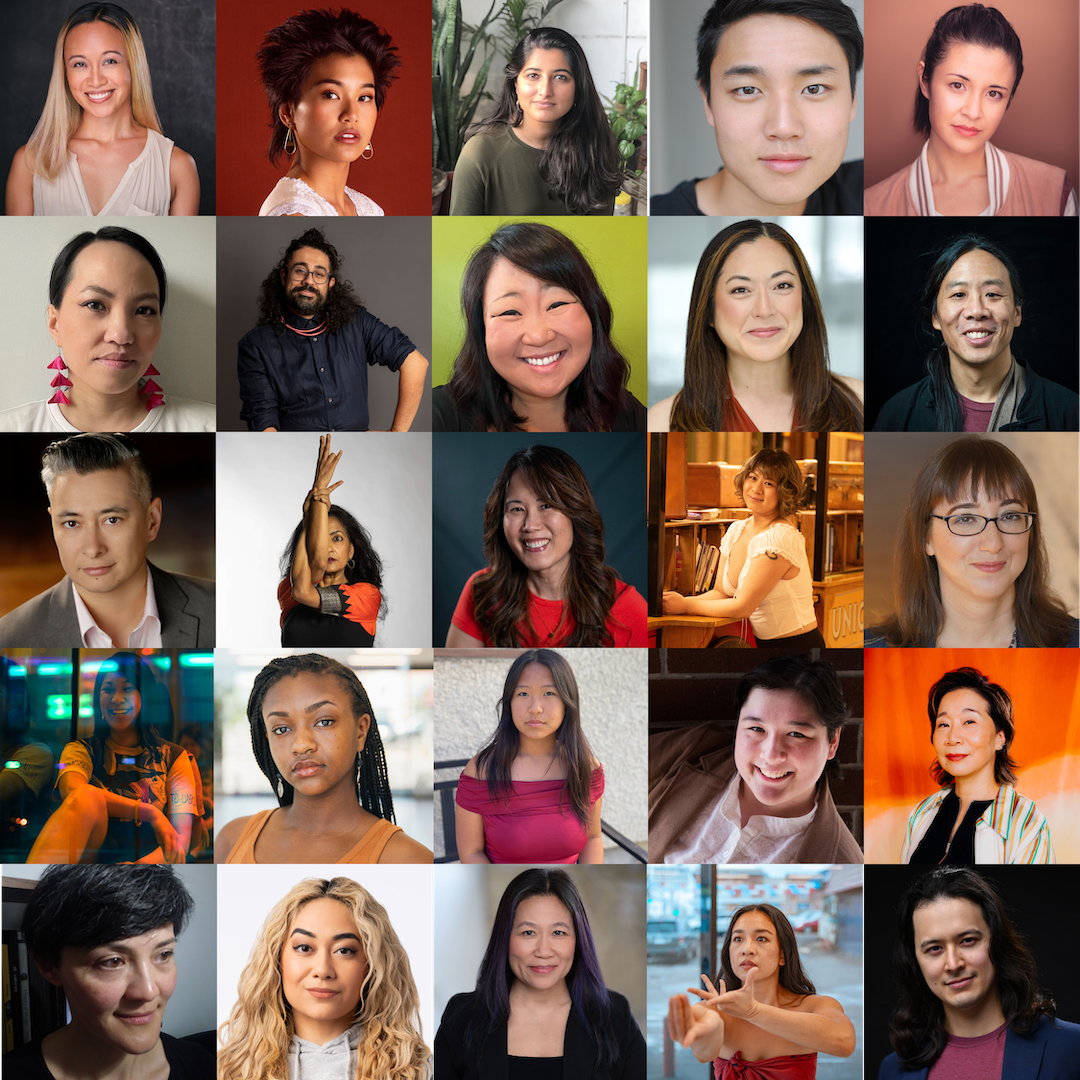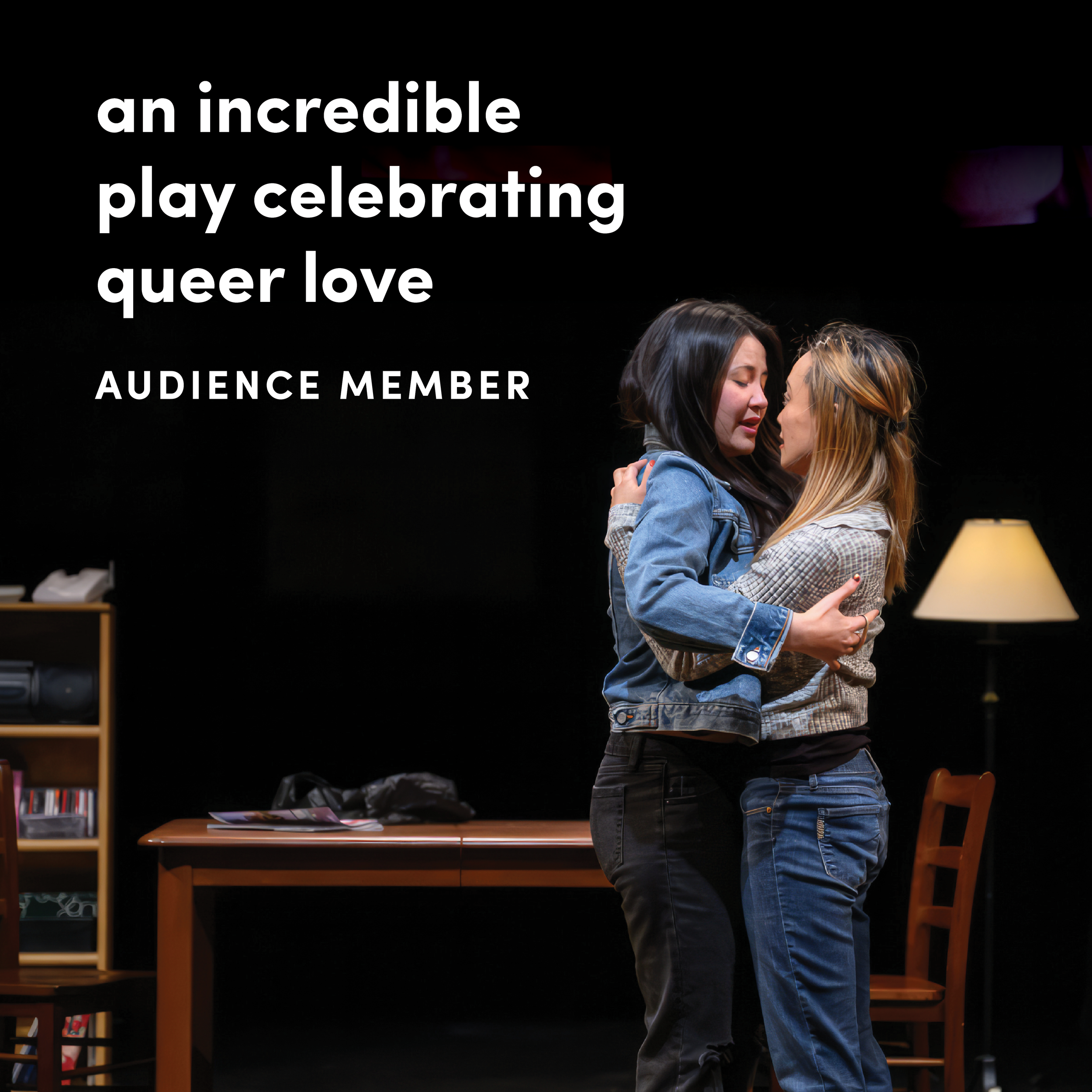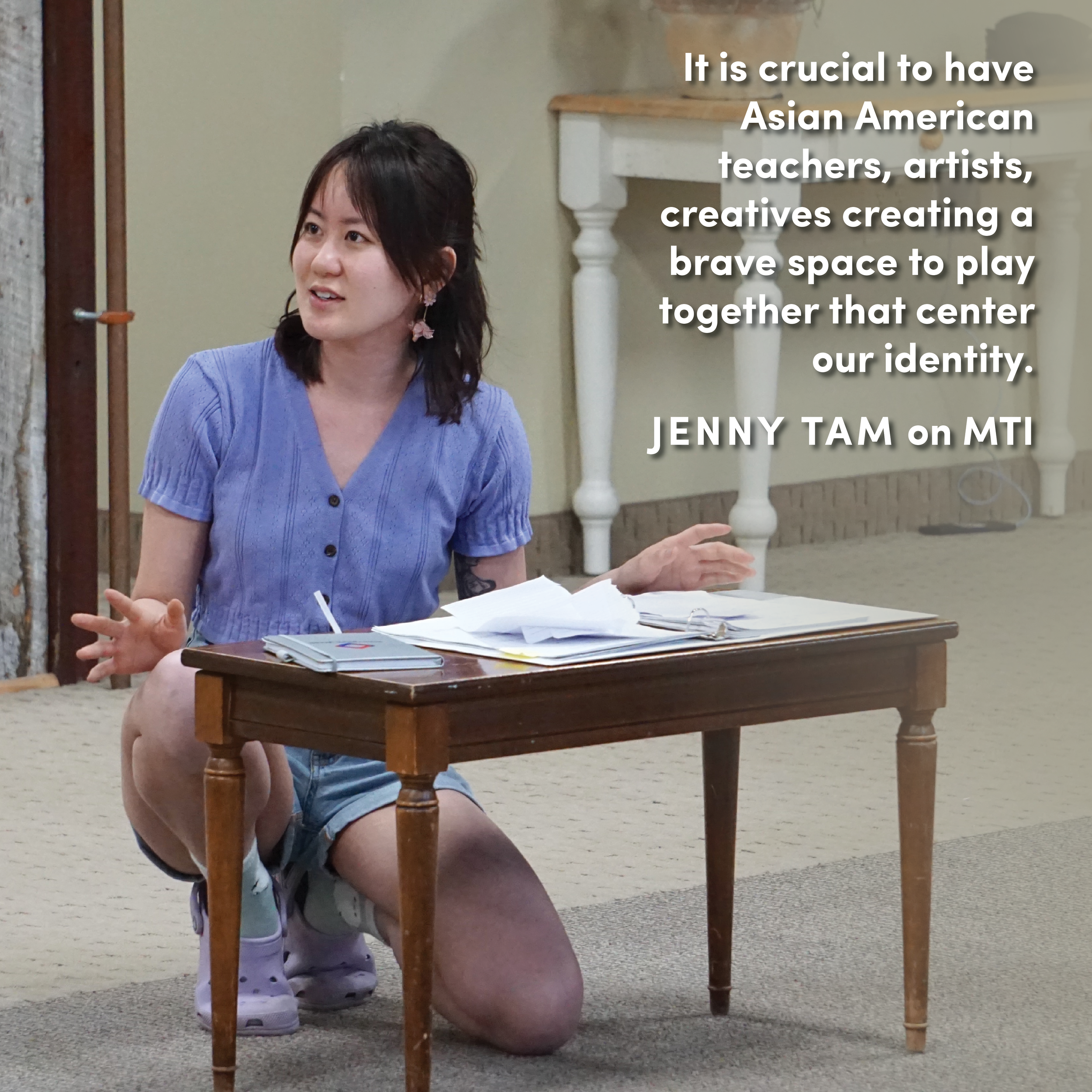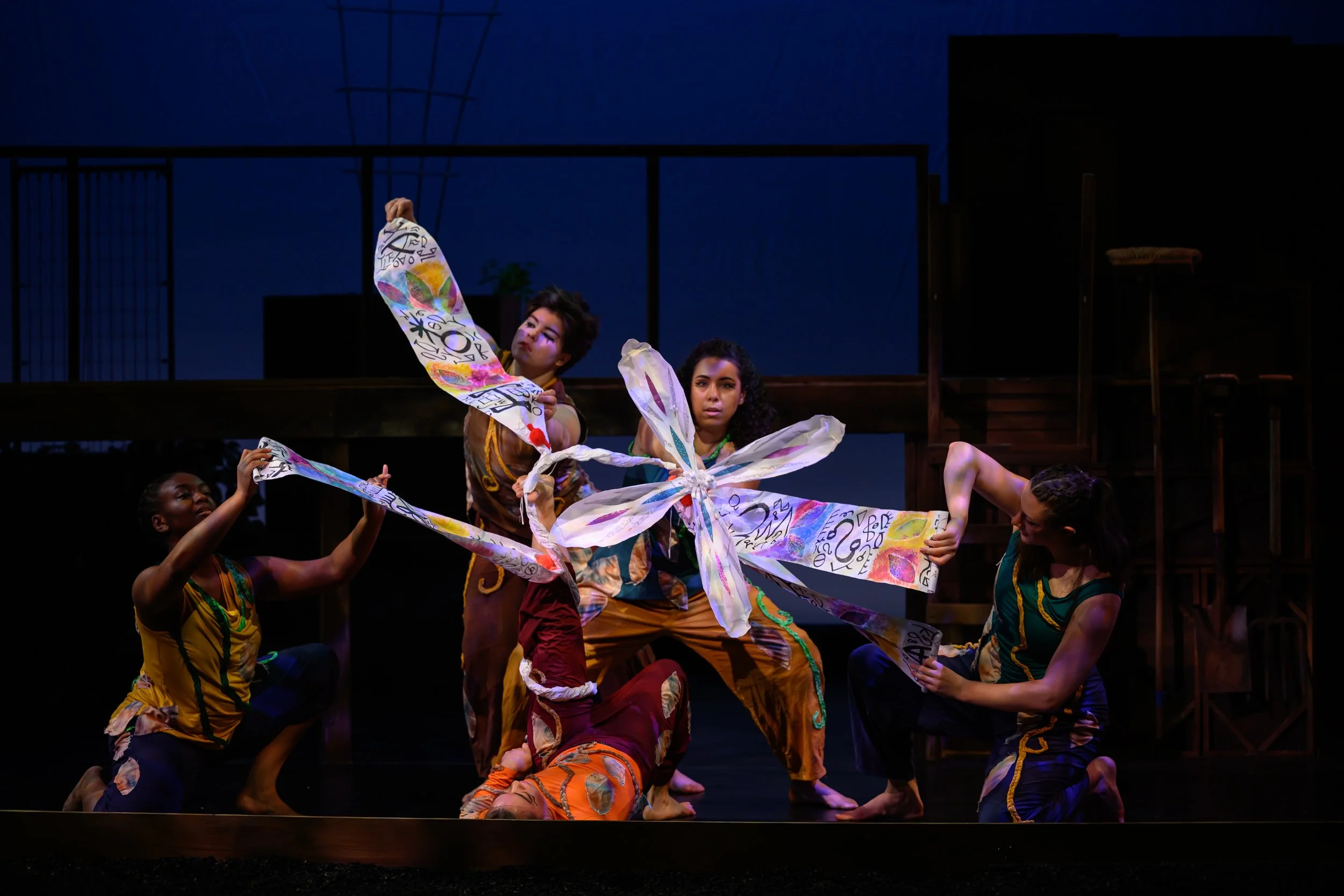HOME / AUGUST Fundraising Campaign
CREATING SPACE WHERE WE BELONG
Mu is changing theater for artists and audiences.
During the 2024/25 season, queer and South Asian American stories allowed audiences and artists to see themselves reflected onstage. In our rehearsal room, artist Mars Niemi discovered their authentic self, and you can learn more about their story on our socials this month. We create similar spaces in our Mu Training Institute, which expanded its youth programming this year. And in Mu’s operations, Fran de Leon was named Mu’s artistic director, joining managing director and co-leader Anh Thu T. Pham.
Help us reach our goal of $15,000 by Aug 31 to ensure that we continue creating spaces of belonging for our artists, audiences, and community.
Representation changes the lives of both our audiences and artists, so in our season of largely queer and South Asian American stories, we continued to focus on audience accessibility and on nurturing the next generation of artists.
62.8% of audiences were able to access our shows because of Pay As You Are ticketing.*
Fifty Boxes of Earth snapshot^:
46.3% of audiences identified as part of the 2SLGBTQIA+ community.
26.9% of audiences identified as having Asian American heritage.
18.9% of audiences identified as part of the disability community.
125 artists were hired for the mainstage. Dozens more were hired for our youth programs, workshops, and community performances.
3 fellowships allowed early-career artists to receive training in directing, sound design, and acting. Beyond the stage: 32 Mu Training Institute students and 22 Mu Explorations youth participants.
from leadership
From artistic director FRAN DE LEON: As Theater Mu’s new artistic director, I’m deeply energized by the road ahead and honored to help shape a future that’s both artistically bold and financially strong. In a time of shrinking public arts funding and widening gaps in essential care, your support is more vital than ever. These aren’t just AAPI stories—they’re American stories. We belong. Join me in moving forward—with vision, urgency, and heart.
From managing director ANH THU T. PHAM: We know challenges are ahead, but what has not changed is our commitment to telling Asian American stories. Mu has already made budget revisions to accommodate the shifting funding landscape, and we will continue to assess while prioritizing intersectional representation, equitable pay, and accessible programming. As Mu’s managing director, I have been touched by the support from our community, whether it’s attending our shows; sustaining our work through season subscriptions, donations, or grants; or simply telling others about us. Thank you for being a part of our Mu family.
From L to R: Taylor West, Mars Niemi, Alyssa Taiber (below), Kiko Laureano, Eliana Durnbaugh. Photo by Rich Ryan.
ARTIST SPOTLIGHT
How did the makeup of the Fifty Boxes of Earth team affect how the story was made?
I’ve never worked in a more diverse space where I’ve been consistently uplifted and surrounded by people like me. Specifically multiracial, queer, and trans. It was incredible working with notable and respected artists such as Ananya Chatterjea and kt shorb shorb, whom I share my Japanese background with. It felt very affirming and inspirational to work alongside a trans nonbinary artist in a lead role.
It helped me feel a sense of resistance and hope toward change especially during these dark times.
Such a small yet diverse cast and crew brought so many unique perspectives and experiences which added authenticity, heart, and soul to the piece. Working with at least five other multiracial people was refreshing and rewarding as we shared and continue to share unique experiences through our existence.
Can you tell us a little bit about your journey with dance and identity?
I started dancing at age 2 and soon began training in classical ballet. I enjoyed expressing my emotions through dance and always loved performing. That’s all I wanted to do. As I hit puberty, I began to become uncomfortable in my body and with the “female” role of ballet. I always felt like I could be the one lifting the other girls. Being lifted was fun, but I always felt a little uncomfortable and ashamed. Over the years, I struggled more and more with my body image, and during COVID, I discovered the label “nonbinary.” This resonated with me a ton, though I preferred to present more masculine. I asked if I could continue my dance training as a boy, and was denied. That’s when I quit ballet but kept up with modern and contemporary dance at various other studios.
As time went on, I lost confidence and interest in dance. I did maintain some technique, as I continued to dance for musical theatre and at Circus Juventas. At the time, dancing felt like a chore and only became fun when I was on stage. Then out of the blue I ended up going to the Theater Mu general auditions, and got invited to a dance audition for Fifty Boxes of Earth. …
I was intimidated but very fascinated with the Yōrcha dance style created by the wonderful Ananya Chatterjea, and throughout the rehearsal process, I struggled, but with lots of hard work, tears, and sweat, I got where I needed to be. The choreography was truly so difficult, but beautiful, filled with immense energy and power. I learned so much from Ananya. She is an incredible soul, amazing to work with, and I am so grateful to have been blessed with her wisdom.
What meant the most to me during my experience at Theater Mu was how much thought was put into respecting my pronouns and my identity. Another thing I felt was that the people there truly care about the well-being of their peers, and the environment was so supportive and uplifting. I appreciated our Yōrcha circles and meditation time. It all showed me how much Theater Mu cares for its actors and crew. I finally felt so comfortable dancing again and felt so free and at peace. The breathwork in the piece also helped me become more aware and mindful of my breath, and gave me more control over my body. Fifty Boxes of Earth was probably my favorite performance as a dancer. I fell in love with dance all over again.
You’ve been a working artist for a bit now. Why do stories that represent parts of your experience matter?
Stories that resonate with my trans and mixed race identities mean so much to me. We are in a time where it is still uncommon to see our stories normalized, and so any bit of representation means a lot. I have always felt passionate about activism and lately have been trying to immerse myself in more activism within theatre. I will advocate for those who are unheard, dismissed, and shut down, and continue to fight for historically underrepresented groups to be given an outlet to feel seen. Art speaks to people louder than words. It is so important, especially now.






